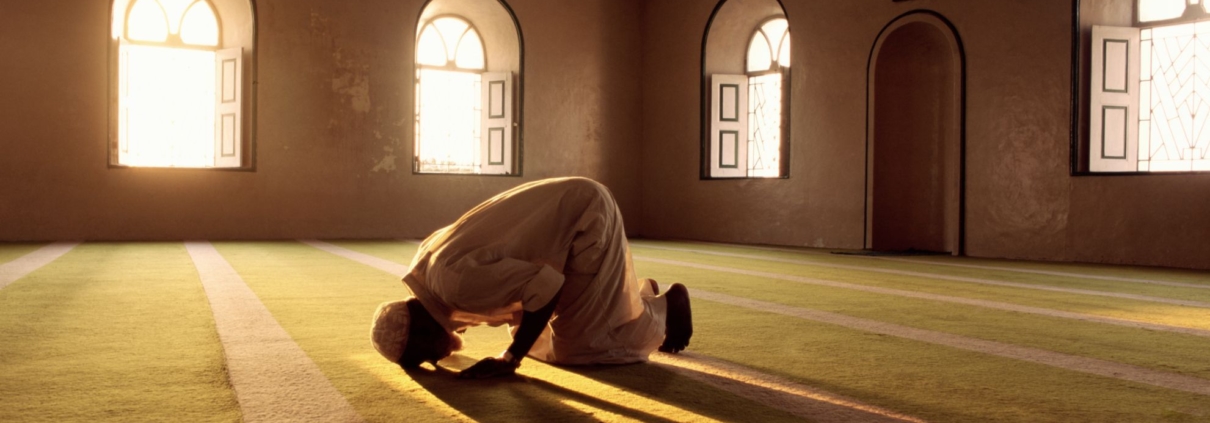Can Muslim Women Be Imams?
Hanafi FiqhShafi'i Fiqh
Answered by Ustadh Farid Dingle
Question
I’m from Italy and here some people think that Islam is for men and that women have a secondary place in Islam.
I see a program on tv, about women can be Imam, and they say this is a revolution inside Islam.
So my question is: Can a woman be an Imam in a community? Can she be an Imam for women and men? Where in the Holy Quran does it say that women can’t be Imams for the Umma?
Answer
Gender Equality in Islam
Allah looks at everyone equally and everyone is welcome to draw near to Him in sincerity, dedication, fear, and hope. Whoever excels another in these is greater in Allah’s eyes, regardless of race or gender.
Allah Most High says, “Verily, Muslim men and Muslim women, believing men and believing women, worshipful men and worshipful women, true men and true women, patient men and patient women, humbled men and humbled women, men and women who give in charity, men who fast and women who fast, men who protect their chastity and women, and men who remember Allah much and women, Allah has prepared for them [indescribable] forgiveness and a tremendous reward.” [Quran, 33:35]
So All men and women are equal before Allah, irrespective of gender.
That said, Allah has also told us in the Quran that He has not given everyone in this life the same provision, rights, and responsibilities:
“It is We who have divided up each person’s livelihood in the Lower Life, and we have raised some over other whole categories such that some should be subject to others. And your Lord’s mercy is better than that which they amass.” [Quran, 43:32]
Some people are rich, and that gives them the right to buy things that others can’t; that also gives them the responsibility to support others. Some people are strong and healthy, and that gives them the right to enjoy their health, and the responsibility to defend the weak. Some people are really intelligent and have the ability and therefore the responsibility to fulfill certain communal obligations, such as being a brain surgeon or a mufti. Some others do not have such capabilities, such opportunities, etc., and this is all from the wisdom and mercy of Allah.
None of this “favoritism” reflects how Allah looks at His slaves: they are all equal and their true and ultimate rank is how they are morally.
And one such way that Allah has apportioned and organized temporal life in this “Lower Life” is that He has not made men and women the same, and has not given them the same rights and responsibilities.
Allah has said in the Quran, “Men are in charge of women because We have given more to some than others.” [Quran, 4:34]
Men are not women, and women are not men. Allah has made two genders to complement one another and has put one in charge of the other in this life, even though they are equal before Allah’s eyes in the next.
Well, to what degree are men in charge of women?
Generally speaking, no man has any control or say in what another man or woman does. However, the general tack in Islam is that men are in charge of leadership roles, such as being the caliph, judgeship, leading the household, and leading the Eid and Friday prayers.
Women can be and do many things: they can be politicians, muftis, CEOs, millionaires, writers, revolutionists, mothers, astronauts, you name it! But there is a general hierarchy in things that touch the structure and performance of the Muslim community.
This responsibility dictates that one follow the other, and the other show mercy, consideration, and stewardship to the other in light of the grave responsibility that rests on his shoulders. This hierarchy is for everyone’s benefit: emotionally, physically, financially, politically, economically …
Responsibility means answerability: so men, or women, who abuse their rights and do not fulfill what is required of them, must provide an answer for their transgressions before a Sharia court in this life, and Allah’s court in the next.
For more details on Women’s active role in the authority, please see: Do the Hadiths Say Women Can’t Be Leaders?
Can women lead the prayer?
Please see: How a Female Imam Should Lead a Congregation of Women in Prayer? [Shafi’i School]
An Explanation of the Hanafi School’s Position on Women’s Congregational Prayer
I pray this helps.
[Ustadh] Farid Dingle
Checked and Approved by Shaykh Faraz Rabbani
Ustadh Farid Dingle has completed extensive years of study in the sciences of the Arabic language and the various Islamic Sciences. During his studies he also earned a CIFE Certificate in Islamic Finance. Over the years he has developed a masterful ability to crafts lessons that help non-Arabic speakers gain a deep understanding of the language. He currently teaches courses in the Arabic Language.
